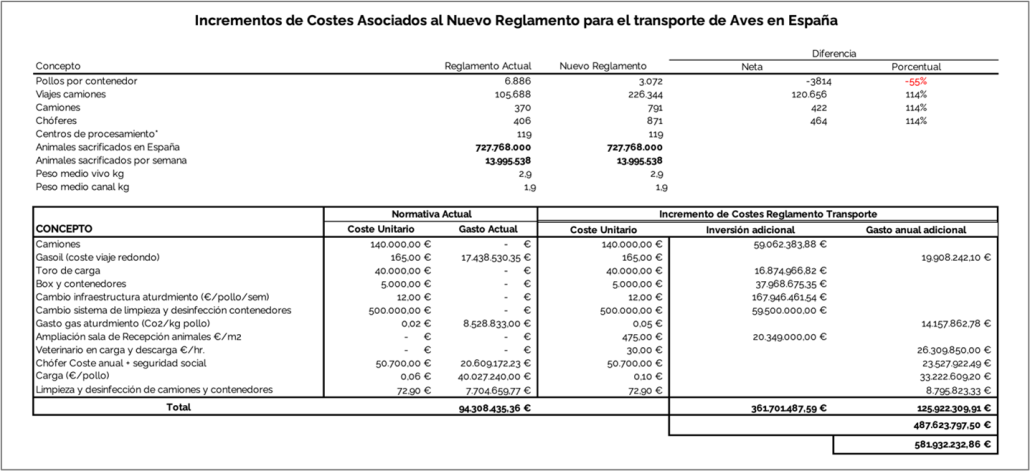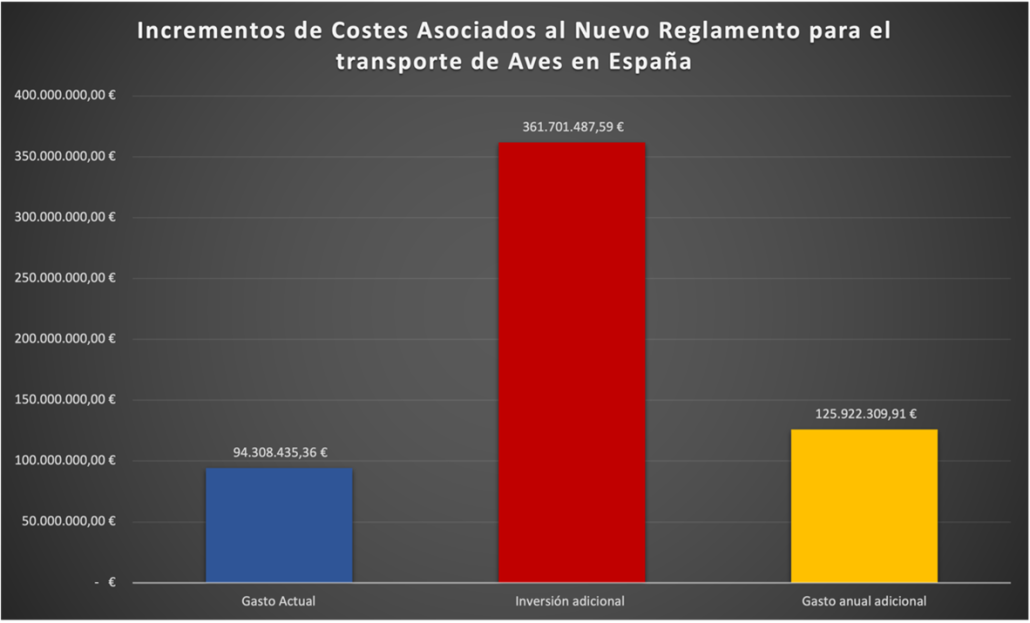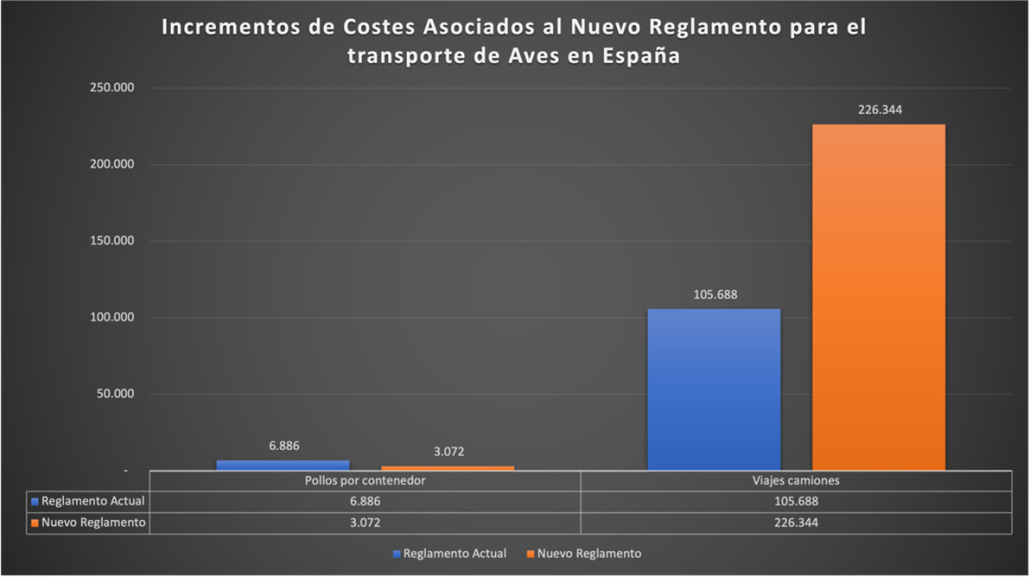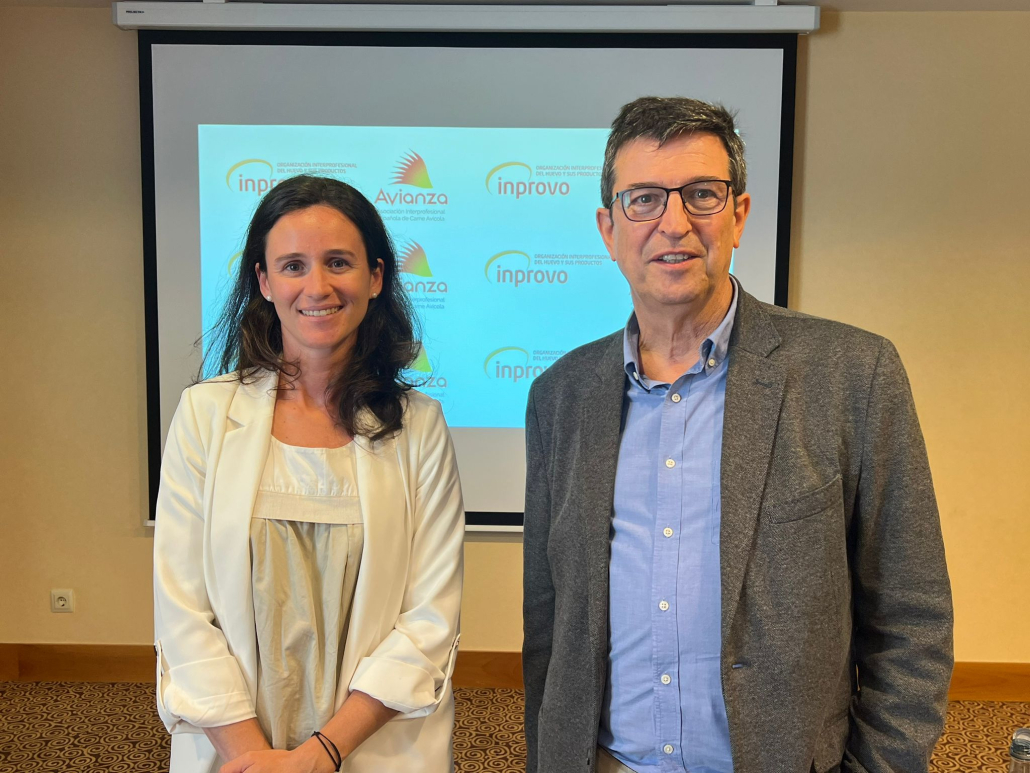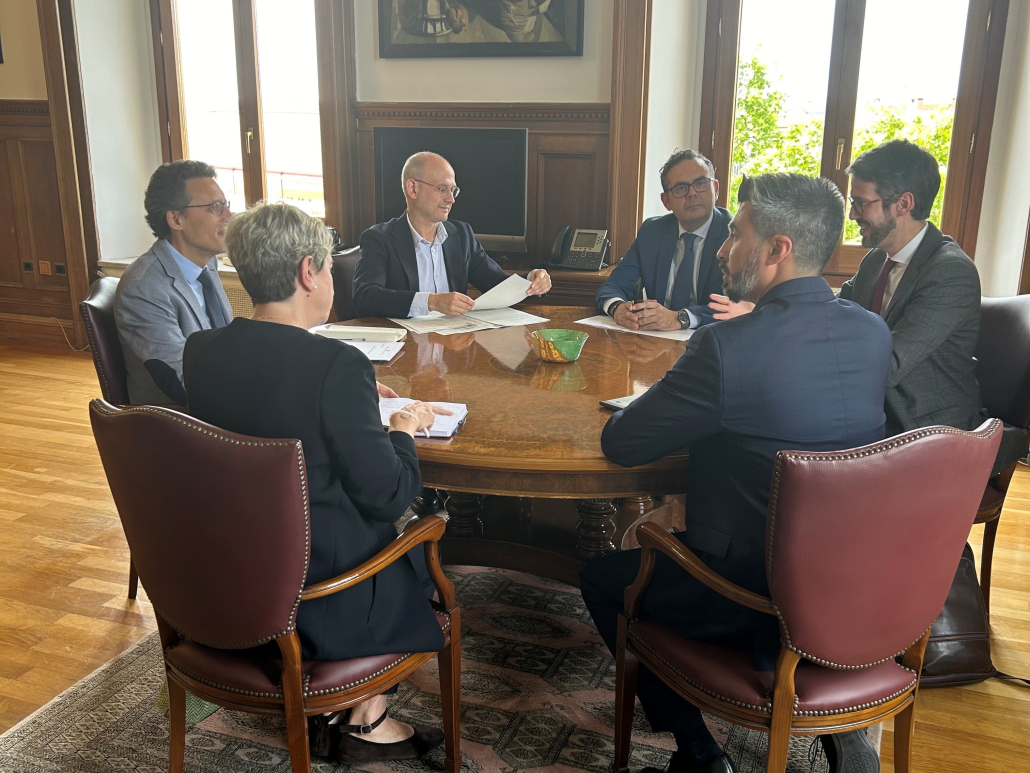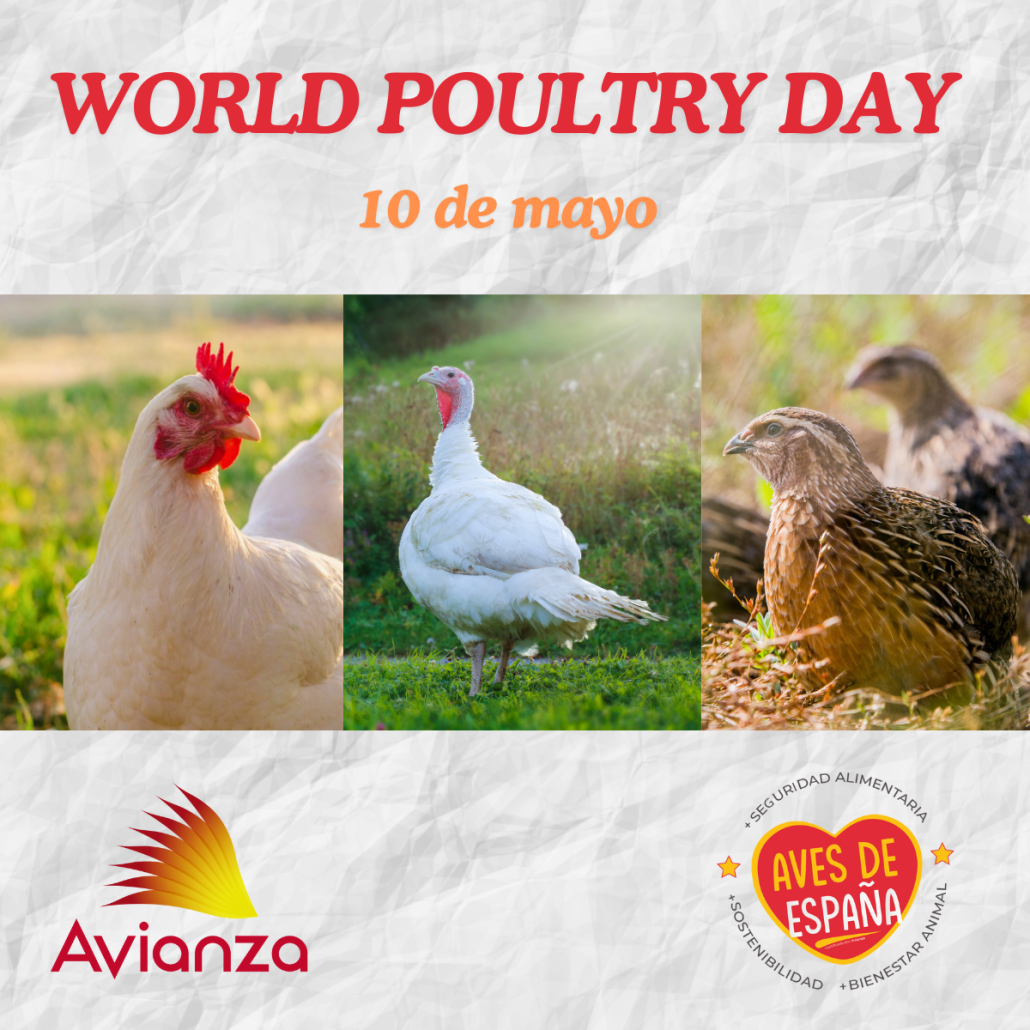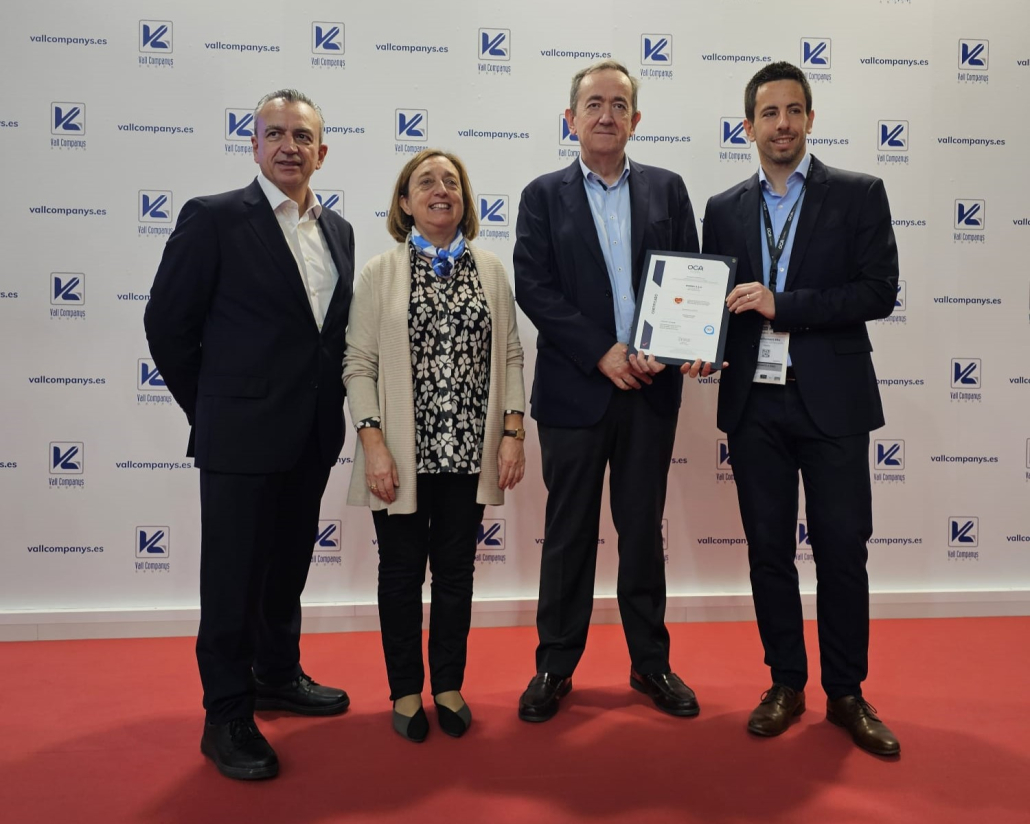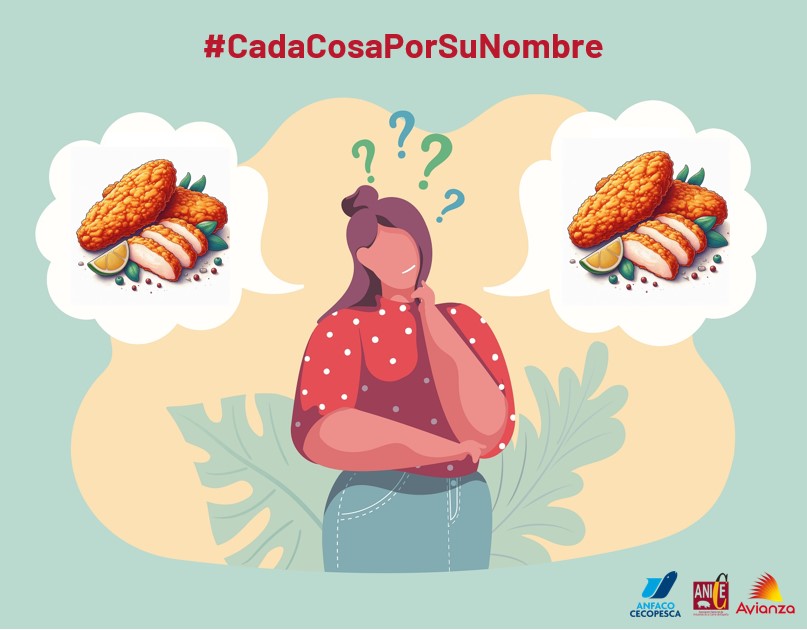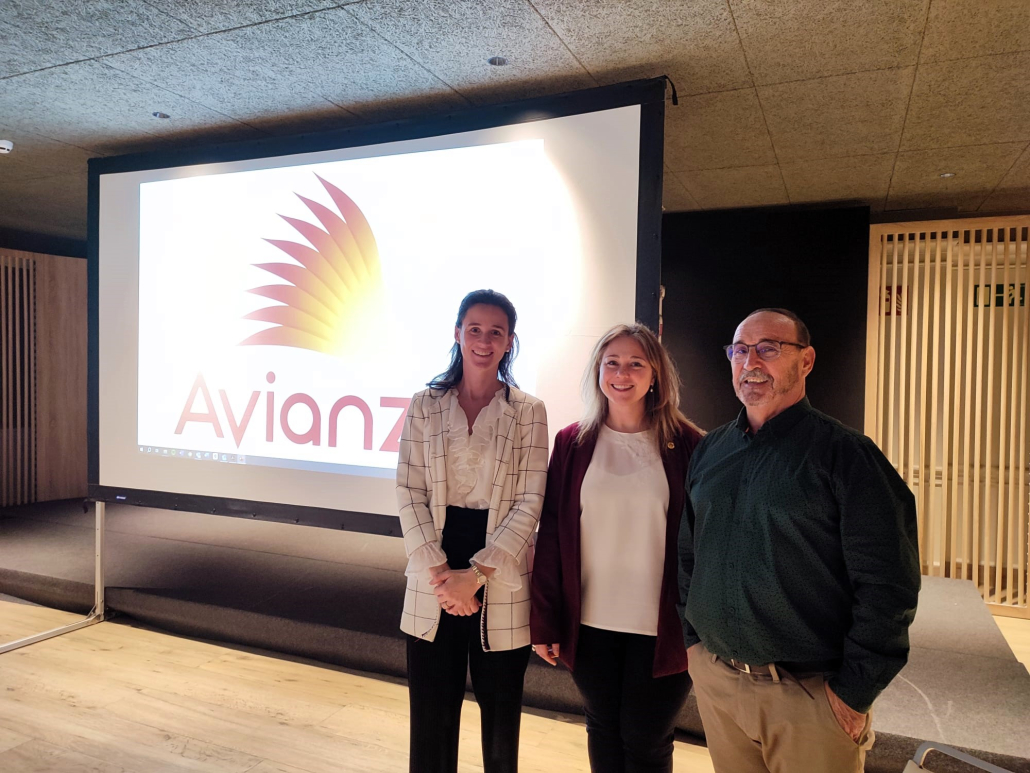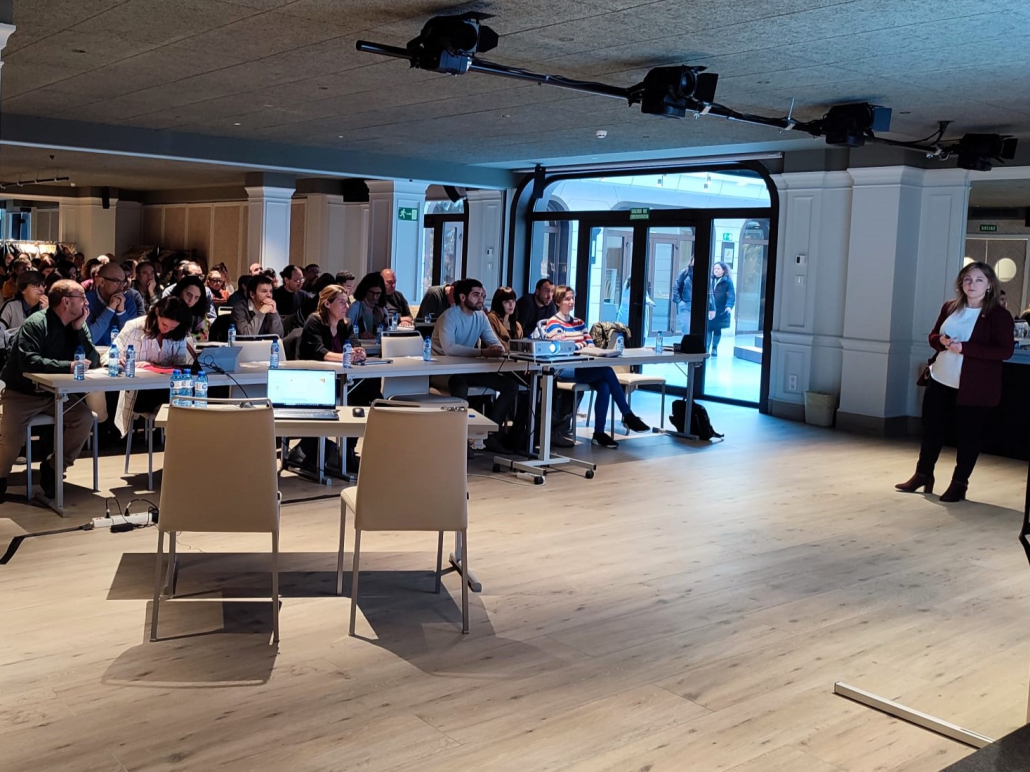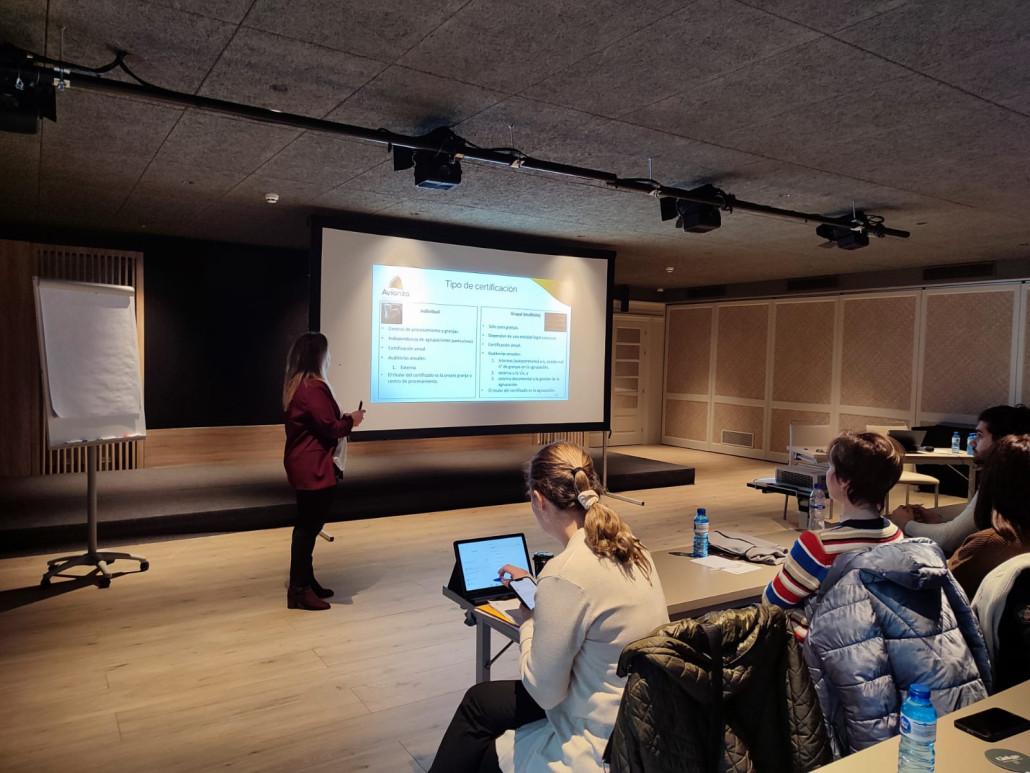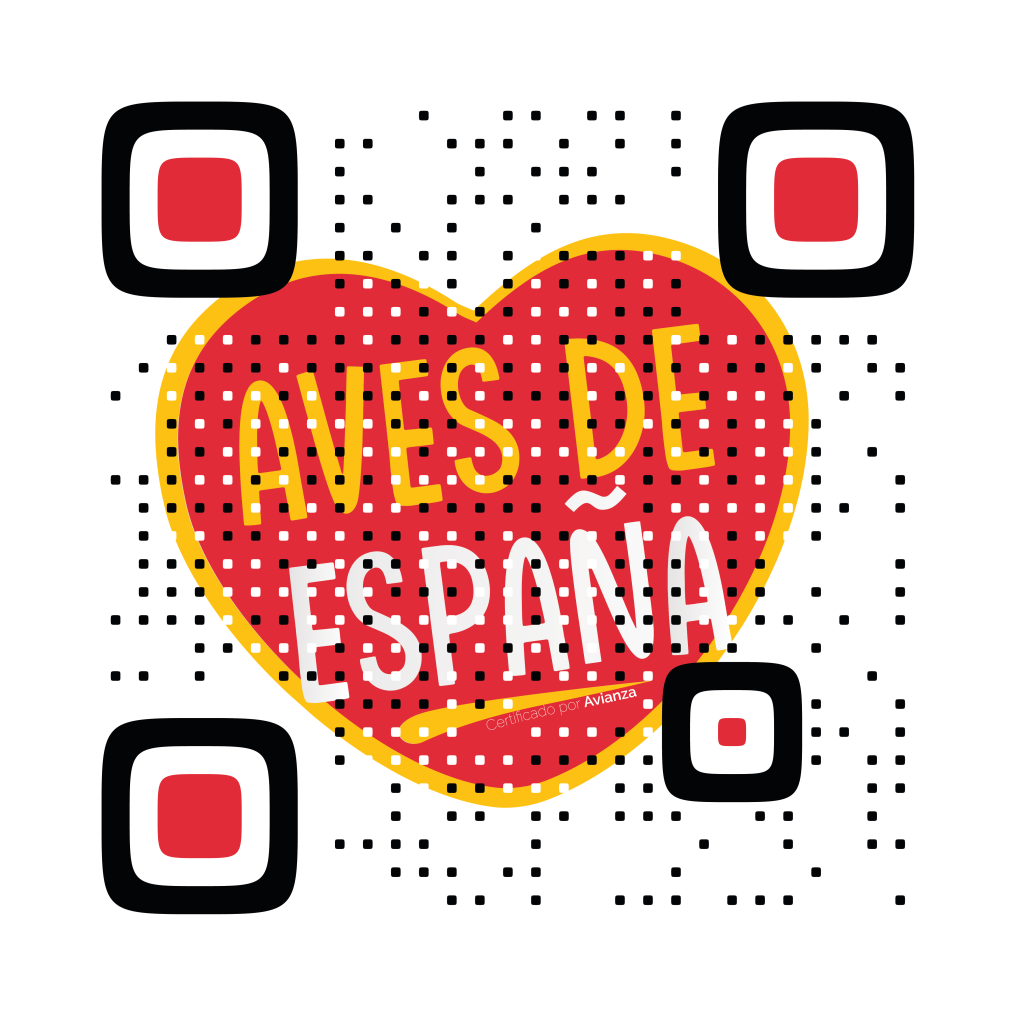- If the entry into force of the new European regulation on the transport of live animals continues, framed in regulations for the supposed promotion of animal welfare, it would mean an immediate investment of 361 million euros, plus another 125 million euros annually.
- For Avianza, this is a regulation that has not taken the sector into account and that is based on a totally “impossible” implementation, which would lead to the closure of Spanish meat companies and the arrival of chicken meat from countries outside the EU that do not meet minimum standards
- The measure means reducing the loading capacity per truck by 43%, increasing the number of necessary trips by 65% (more than 15 million additional kilometers), and generating an additional 222% of greenhouse gas emissions.
Madrid, June 27, 2024. Avianza, the Spanish Interprofessional Poultry Meat Association, has presented, on the occasion of the European Poultry Conference (Valencia), the main conclusions of its “Report on the Impact on the poultry meat sector of the proposal for a Regulation on the protection of animals during transport and related operations”, amending Council Regulation (EC) No 1255/97 of the Council of the European Union and repealing Council Regulation (EC) No 1/2005. An initiative that supposedly seeks to promote animal welfare, but that neither improves it nor represents a benefit in terms of sustainability, with a negative impact in both fields, especially for Spain.
This analysis, which has been transferred to both the European Commission and the Ministry of Agriculture, Fisheries and Food of the Government of Spain, details the disastrous implications of this regulation for both consumers and the environment, contrary to what it claims to intend, and In practice, it means the possible disappearance of thousands of farms and companies producing the poultry meat sector. in our country, given the consequences on the viability, competitiveness and restrictions of the new proposed regulations.
The regulation aims to impose a redesign of the transport containers, increasing their height, as well as regulating the density in each of them. In addition, the consumption of inputs would increase, such as fuel, wear and tear on vehicles, overtime of transporters (with the consequent occupational risk and road congestion),... It would also imply the adaptation of mechanical infrastructure systems of the processing facilities, waiting times. , etc.
These are the main conclusions of the Report:
Resolution of a Non-existent Problem
The report highlights that the declines in poultry transport in Spain they are already extremely low, with an average of 0.3%. This figure indicates that the current regulation already guarantees a high level of animal welfare during transport. The proposal does not present a situation or impact analysis, and appears to address a problem that does not exist in the reality of the sector.
Economic Impact on the Consumer
The implementation of this regulation would have a brutal economic impact on the Spanish shopping basket, as has been demonstrated in other regulations applied in European countries regarding animal welfare defined behind the backs of the sector, and which has tripled in some cases the price of chicken, as in the case of the Netherlands.
The additional production cost is estimated at 361 million euros in the first year alone for the adaptation of infrastructure, transportation, etc., to which 125 million euros would be added annually due to the increase in travel, additional necessary personnel, consumption of energy, etc. In total, 861 million euros in this legislature. An increase that would once again affect the entire value chain, especially the population in a situation of economic vulnerability.
Risk to Food Sovereignty
Spain is a key exporter of high-quality poultry genetics. The new proposed restrictions would put export capacity at risk, affecting the food sovereignty of both the European Union and the countries supplied. Companies would be forced to relocate outside the EU to maintain their markets, which would also endanger European food sovereignty. Unfortunately, relocation can actually be the step towards the closure of companies and the entry of production from other markets not subject to the regulation that is intended to be applied.
Environmental Consequences
The proposed regulation would increase CO2 emissions, water consumption and the carbon footprint of poultry transportation, reducing the sustainability of the sector. This contrasts with the sustainability and environmental protection objectives that the EU aims to promote. In addition to an increase in the number of trips to move the same production of poultry meat (more than 65%), it would imply the emission of 222% more greenhouse gas emissions.
Assumption “Animal Welfare”
Contrary to what is intended, the new regulations could harm animal welfare. Increased space between animals during transport could increase the risk of injuries and fractures, without providing significant benefits in terms of animal welfare. Transporting animals with lower densities would be equivalent to creating very dangerous gaps in the event of braking, as well as height regulations, which could cause raised animals to fall and break limbs. For comparison, this measure “"It would be like removing the seats from a bus so that people could travel standing on the road," which is clearly truly reckless.
Avianza reiterates its commitment to animal welfare, sustainability and food safety. However, it urges that any new regulation be based on concrete data and a rigorous analysis of the real impact on the sector and consumers.
